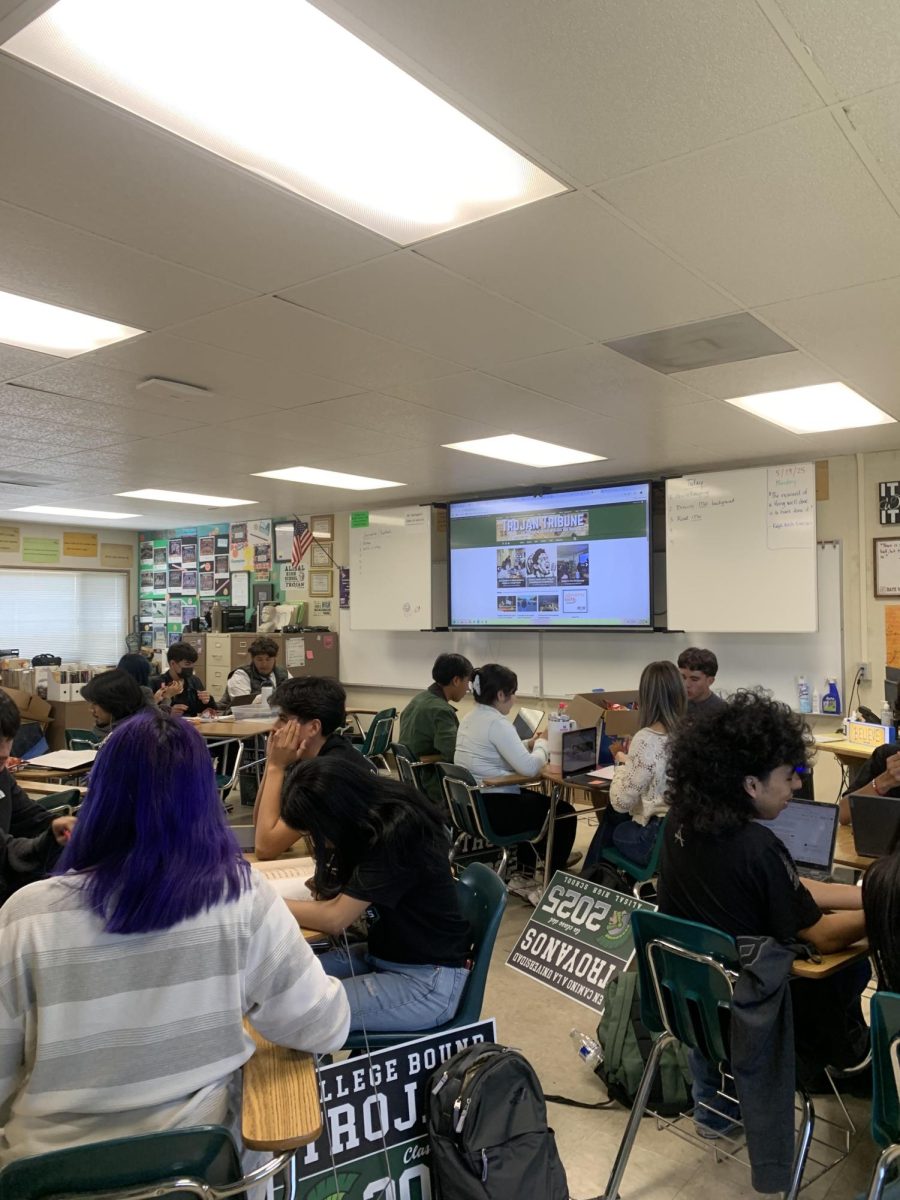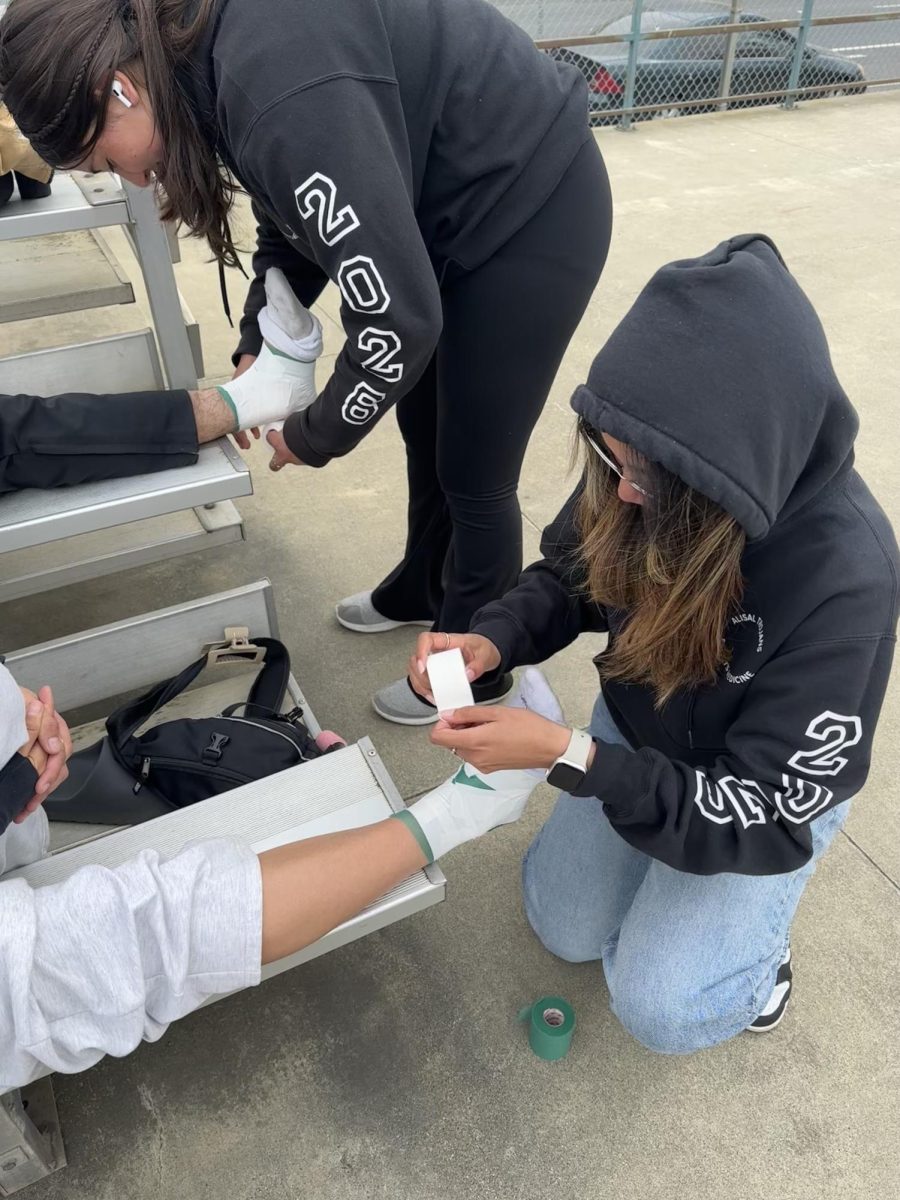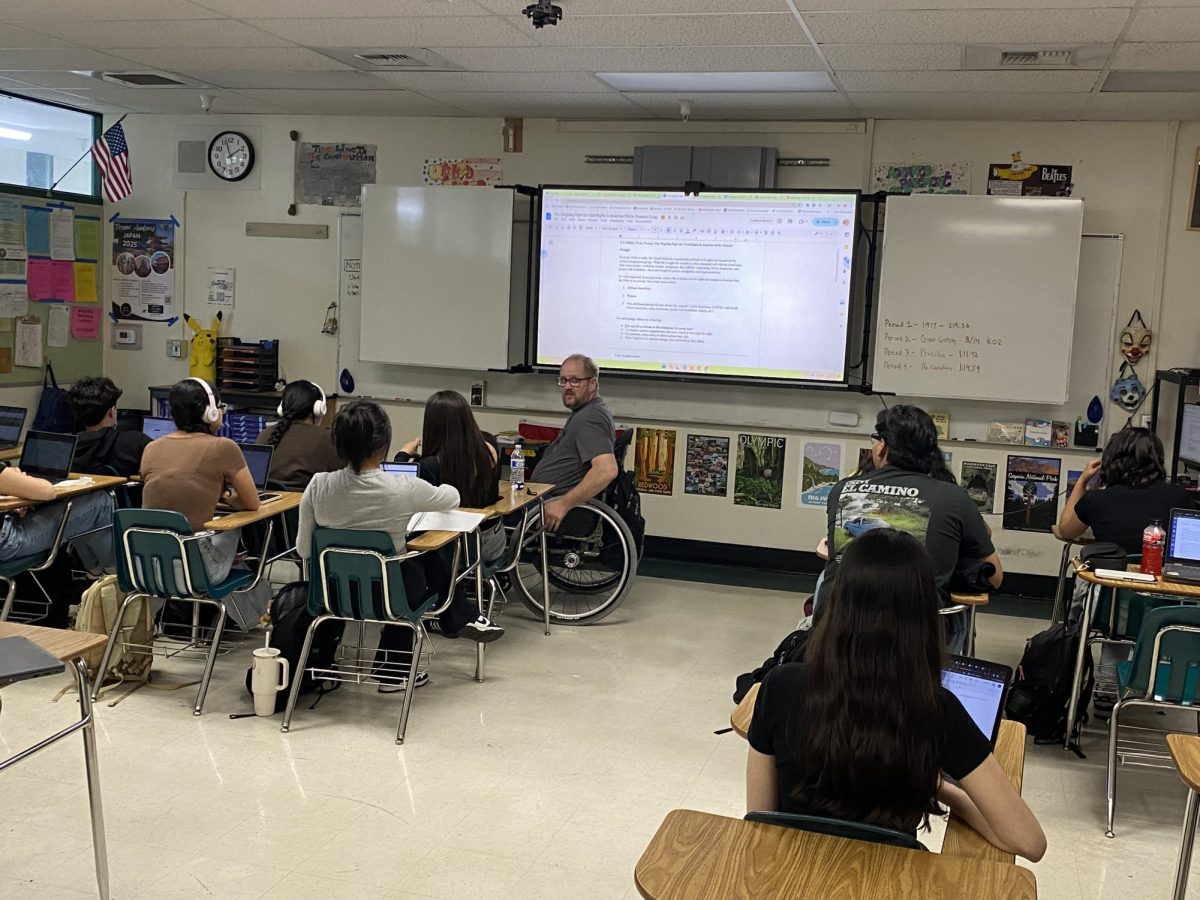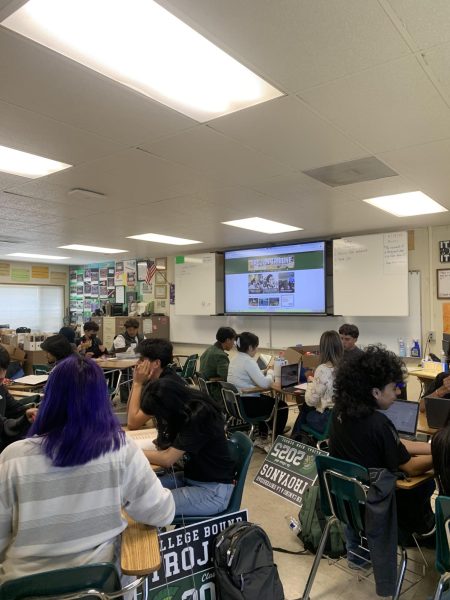The Unique Situation of One-Semester AP Courses

Senior Mikaela Arista is concentrating on her AP Calculus homework. “I enjoy doing math homework, especially now that I’m taking calculus. Though there are certain parts of the curriculum that give me a challenge, the best part is working through it and feeling successful when I finally get the right answer,” she says.
2020 has brought so many unprecedented obstacles. Students and staff alike feel the pressure and stress that comes from the sudden switch to online school. Maintaining focus, keeping up with work, and having organization prove to be hardships for every Alisal student, regardless of grade or the level of difficulty of the classes they’re taking.
This year, however, proves to be especially difficult for anybody taking AP courses. Last year, students had to take a singular test in a span of 45 minutes. Senior Jennifer Matias said, “Taking the AP exams last year was a little nerve-wracking at first just because there were a lot of uncertainties of how the testing was going to be taken, but overall I felt like the test went pretty well.” Similarly, senior Mikaela Arista said, “It still felt strange to be online, but I liked the shorter exams.” She expressed gratitude yet further explains why the 45-minute test was such a bizarre experience, “My teachers did a great job with providing the extra support we all needed, but there was just something about not physically being at school that made learning and reviewing more difficult.” Junior Hugo Jiminez said, “Last year was different and a little stressful.” He had taken the AP Spanish Literature exam and despite the drastic changes in the testing methods, he thought it was an overall positive experience aside from the stress, explaining, “It taught me a lot of new things like how to study more efficiently and work hard. Overall, I would say my experience [was] rough but exciting.”
This year, with only one semester to complete a full course, it’s hustling from here on out. The workload has become heavier compared to the previous years, but not overwhelming as Matias pointed out, “I feel like I have been handling the workload okay. Sometimes it does feel like a lot just because I just tend to get distracted because of the whole new learning environment, but overall I feel like I have done a pretty good job with handling the workload.” Arista, on the other hand, explains that this semester has been quite productive, saying, “This year, I would say I have been very efficient in completing assignments on time and mastering the content I have learned.” Jiminez seems to be fine with the workload, saying “I‘ve been handling it well, I prioritize AP above other classes.”
Because of the unorthodox scheduling of this year’s classes, some AP students have to take the classes both semesters. Kevin Cardenas, a senior, explains the possible hardships of taking advanced classes year-round: “Since AP classes are already difficult, you’re going to have to get used to a lot of [work], especially since it’s in different types of subjects.” Matias expresses a similar viewpoint, “I think the only thing that would be hard is that we have to start a whole new class all over and we don’t have that much time so it would feel rushed.” Arista expressed more concern over the AP exam that takes place in May rather than the course load that comes along with taking AP classes, saying, “I am worried that losing out on some of the curriculum content may come back to bite when I take the AP exams in May.” Junior Leslie Villalobos said the only reason the class she’s scheduled to take next semester, AP Spanish Language, will be difficult is because of the vocabulary. “Spanish is my first language, but I am not necessarily fluent. I’ll for sure need to expand my vocabulary.” Junior Alexis Diaz doesn’t show enthusiasm for his next semester’s English-focused classes, stating the difficulties will be “having all writing-based classes next semester will be pretty rough as I don’t really like writing.”
Those new to the AP curriculum are facing a strange situation and for their first experience. Cardenas said, “They’re not hard, just annoying it at times [because of the workload]. Also, [the experience] depends on the teacher and how well the teacher teaches, plus the learning environment that is centered around them.” Diaz explains his somewhat negative experience going into AP classes, stating that “It has been pretty poor because it is pretty fast and hard to get a solid grasp on the material.” Although the overall class isn’t the negative factor for Diaz, the pacing of certain classes are, as previously stated. He uses his AP Physics class as an example, saying “[The pacing] made it pretty difficult to study and prepare for the tests as we had to try and recall the lectures and notes from give or take two weeks ago.” Villalobos says the difficulties of the AP classes were a little off from what she expected but she expressed relief, stating “Overall, I would say it is a bit harder than what I imagined it to be, but I’m glad that that is the case.”
Although the students have a somewhat positive experience so far being in AP, the same can’t be exactly said for some of the teachers. Mick Battaglini, who teaches AP English Language for the juniors, expresses his slight frustration over the current teaching situation, explaining “[The experience is] Not ideal, obviously. The time crunch is daunting. It’s also not fun to not be able to see students and make connections like I normally do.” Likewise, Catharina Beussen, the AP Statistics teacher, describes her struggles in her unique situation “[The issue is] Time, especially because I can only spend half of the class period with my AP kids, I have another group of Math Analysis students during the same class period.” However, not every teacher seems to face as much hardships as Julio Gonzalez, one of the AP Spanish Language teachers, states “[The experience so far is] Great. New and challenging, but I am really liking it.”
The AP staff, however, has solid plans to teach the students as best they can with the given time. Battaglini explains his plans for both semesters, saying “For 1st-semester students, they at least get instruction and will be able to review the things we covered, whereas the 2nd-semester students need to make due with what we cover.” Beussen gives a straightforward plan, stating “[I will] Continue teaching the remainder of the course during the Spring Semester, possibly on Saturdays.” Gonzalez gives specific examples of his teaching plans, explaining “[I’ll] divide the units by the number of days in the semester. focus on the skills that are going to be assessed in the exam and provide them enough feedback to help them understand the rigor of the exam.”
Despite all of this, students are optimistic for the upcoming work to come and have some words of encouragement for their fellow peers. Arista recommends for students to develop healthy habits such as 50 minute intervals of studying, exercising and having a balanced diet. Matias suggests focusing on the work and although it’s stressful at times, she ends on a positive note, saying they’ll get through it and do well. Villalobos encourages time management for students and to give themselves breaks and to not be too hard on themselves. Jimenez sends words of positive encouragement, saying that although it’s hard, “we can all push and go through it.”
Similarly, the staff have some words of encouragement directed towards both their students and their fellow AP staff. Battaglini says “For the current students, I would say that even though we were only together for a semester, they have an advantage over the 2nd-semester students in that they DO have a whole year worth of prep for the test, they just need to do half of it on their own. For the staff, as challenging as this is, we can do it.” Beussen encourages students to “Stay with it, do your homework, be diligent and you will be successful.” She gives a simple word of advice to staff, saying “Be empathetic, the kids work hard.” Gonzalez motivates his students to “Be hungry. Be open-minded (about our current class and testing situations) and always ask questions but more importantly do the work. You won’t improve (or know) if you don’t do the work. It’s like going to work. If you don’t work, you won’t get paid.”
Your donation will support the student journalists of Alisal High School. Your contribution will allow us to purchase equipment and cover our annual website hosting costs.


























